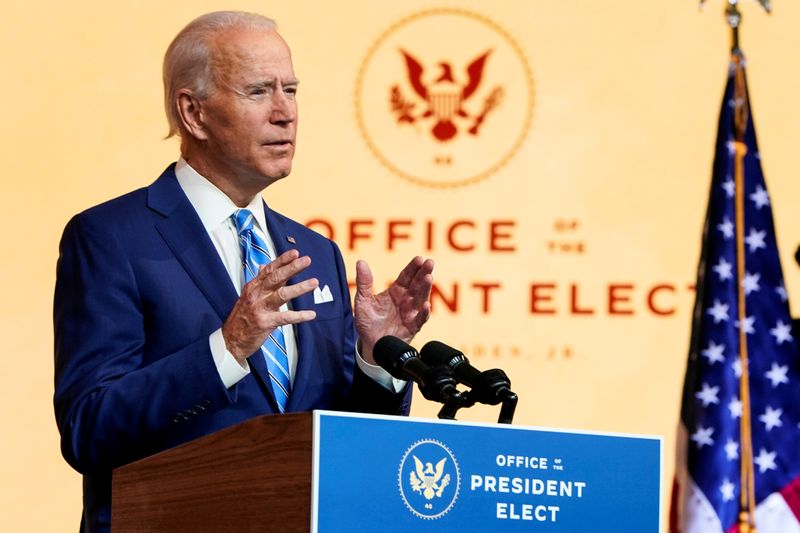WASHINGTON (Reuters) - President-elect Joe Biden on Tuesday said he hopes the U.S. Supreme Court rejects a plan by President Donald Trump's administration to exclude immigrants living illegally in the United States from population counts used to allocate congressional districts to states.
"We can't keep rewriting history, scrambling norms, and ignoring the Constitution and the precedents we abide by. It is my hope the Supreme Court does the right thing" and rules that "everyone in America" be counted, Biden said in a statement.
The court heard arguments on Tuesday in the administration's bid to fend off a legal challenge to the plan, which is one of Trump's hardline policies toward immigration being pursued in his final weeks in office.
The court's 6-3 conservative majority includes three justices appointed by Trump. The court's conservative justices on Tuesday appeared reluctant to block the plan - still vaguely defined - to exclude these immigrants from the calculations used to allocate seats in the House of Representatives.
Biden, set to become president on Jan. 20, could reverse course if the congressional apportionment numbers have not been finalized by then. Trump's administration has acknowledged that it does not know yet how or if it will be able to implement its proposal.
"The Supreme Court of the United States heard a case about whether everyone in America will be counted in the Census for the purpose of apportionment of Congressional seats, as the Constitution plainly and clearly requires. Or whether the partisan politics of intimidation and xenophobia will intentionally exclude specific groups of people from being counted," Biden said.
"Congress must give the experts at the Census the time to make sure everyone gets counted accurately," the president-elect added. "Let everyone be counted and let us begin the work to heal and unite our nation."
There are an estimated 11 million immigrants living in the United States illegally. The U.S. Constitution requires the apportionment of House seats to be based upon the "whole number of persons in each state." Until now, the government's practice has been to count all people regardless of their citizenship or immigration status.

The challengers have said Trump's plan would dilute the political clout of states with larger numbers of illegal immigrants, including heavily Democratic California, by undercounting their true populations and depriving them of House seats, benefiting his fellow Republicans.
